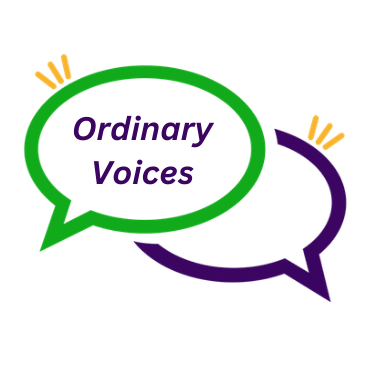We Got Nicer Boats!
Hearing And Listening Are Not The Same
by Eric Elkin
“You must understand this, my beloved: let everyone be quick to listen, slow to speak, slow to anger;”
At a rally in North Dakota in June, President Trump made headlines by calling himself and his supporters the “super-elite.” The response to his comments, both from supporters and critics, revealed how we listen to the words people speak. It is as Sheryl Connelly, a frequent TED speaker on listening, noted, “Our brains home in on what's familiar because it's easy and comfortable, and it reassures us of our intelligence.”
Speaking in support of a GOP candidate, President Trump told the crowd in North Dakota, “That’s elite?’ We got more money, we got more brains, we got better houses, apartments, we got nicer boats, we’re smarter than they are, and they say they’re elite? We’re the elite. You’re the elite.”
John Oliver, the host of HBO's show, Last Week Tonight, picked up on the comments. Oliver focused on the irony of Trump telling a group of North Dakotans, perhaps the people who hate East Coast wealth, privilege, elitism, more than any other state, that they were elites, just like him. Until that speech, I never realized being a New York socialite was just like growing sugar beets in Buxton, North Dakota.
What Oliver failed to do was listen. He did not consider how those words were received. What I am sure the crowd heard was, you are smart, you have a nice life, and I think you are special. Instead, the host focused on people having a boat. He looked at a landlocked state and wondered, who has a yacht?
““Understanding and loving are inseparable. If they are separate, it is a cerebral process and the door to essential understanding remains closed.””
Listening to the show late at night when I couldn’t sleep, I found myself laughing. Most people in that crowd do have boats. They are not yachts, but expensive fishing boats. Boats they take to Devil’s Lake, Leech Lake or any number of lakes in Northern Minnesota, to go fishing. It might sound strange to the rest of the world, but compliment a North Dakotan on their boat, and you might make them cry.
The author of James writes, "Be quick to listen." I can’t think of any better advice to give in this current climate in which we live. When someone is talking to you, set down your cell phone and stop searching the internet so you can listen. Be slow to speak. Stop trying to form your response before the person is done talking. Listen for what your neighbor is trying to say.
I think Sheryl Connelly captured the essence of James' wisdom in one of her TED talks. She invited the audience when listening, to challenge themselves and be open to new possibilities. Connelly stressed that hearing is not the same as listening. To me, Sheryl and James agree, listening is essential for real life.
Click to read James 1: 17-27
Reflection Questions:
- How open are you to new possibilities?
- When have you felt unheard by a friend?
- What could they have done to improve their listening skills?
- What could you learn about your listening skills from the experience?

















